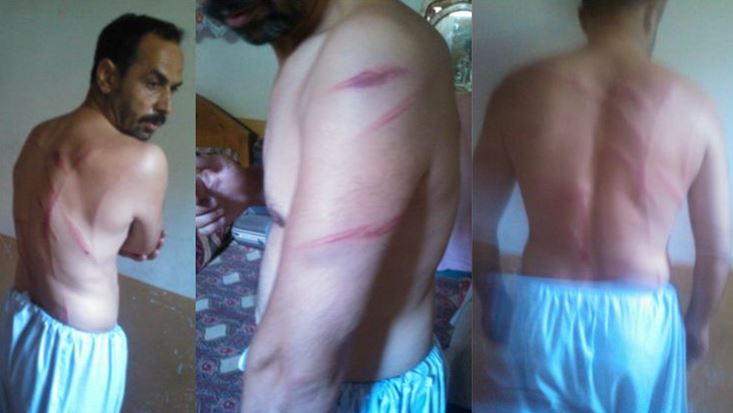PAKISTAN: Gilgit Baltistan police control prosecution department so are free to torture

Police excesses and torture are not a new phenomenon in urban and remote regions of the country. A relatively peaceful and serene Chalat Bala District, Nagar Gilgit Baltistan region, has been chaotic since the establishment of the Chalat Police station. Instead of maintaining peace and order, the police officers have reportedly been extorting bribes from local residents.
Recently a case of police torture was reported in the vernacular press. The victim, Mr. Shabbir Hussain Son of Jaffer Ali, resident of Chalat Bala district Nagar, was beaten with severe bruising for refusing to heed a Jirga verdict. Mr. Hussain had a dispute with his cousin Fida Ali on the use of common space between their houses. While Mr. Shabir was in Dubai, the dispute was presented before a Jirga of local elders who ruled against him.
Because of the Jirga verdict, Mr. Shabbir was required to make major changes inside his house. This took time, infuriating Fida, so he lodged a complaint at the Chalat police station. According to the police account, Mr. Shabir was asked to visit the police station a number of times. He refused to oblige. On 26th June 2016, the police invaded his house. He was arrested without a warrant, taken to the police station, illegally detained and beaten with long sticks by Constable Iftikhar and Station House Officer (SHO) Iqbal.
At the intervention of local notables, he was released after being in remand for a day. No FIR has been lodged against Mr. Shabbir, yet he was tortured and detained for interrogation at the Chalat police station.
In the Gilgit Baltistan region, performance of law enforcement agencies is said to be very poor. There are no adequate checks and balances on society on the part of the government. As a result, police officers do not follow the rule of “no torture” during an investigation. Both police officers and/or magistrates do not follow the rules for remand. Most officers are not capable, having insufficient background in the law.
The police are entirely handling the prosecution department in Gilgit Baltistan. This means, that not only is torture not reported, it is never prosecuted. As police officers prosecuting cases in court are ignorant of the law, many criminals are acquitted. A number of District Magistrates of the Chilas district lament that the police have complete impunity and are not answerable to anyone. “The magistrates cannot prosecute or even order actions against an officer who transcends his duty during an investigation.”
Torture is not considered a crime–even victims think it is a routine matter and do not report it.
It is a sad reality, that under the archaic colonial system of policing, police stations have become bastions of crime and criminals. A region, which had been peaceful, becomes crime infested as soon as a police station is established. Harsh incidents of police torture are still a rarity yet the trend is increasing.
Baba Jan, a prominent frontline activist from Gilgit Batistan had been tortured continuously for two years while in Gilgit Baltistan police custody. The AHRC has raised the issue of torture in several Urgent Appeals. ( AHRC-UAC-070-2012 and AHRC-UAU-026-2014 )
Article 14 of the constitution recognizes and protects the dignity of the citizen, prohibiting the use of torture by law enforcement agencies. The police who are duty bound to protect citizens cannot be allowed to perpetuate acts of torture upon persons in their custody. Their primary duty is to detect crime, bring the criminals before a court of law and not to punish them.
The Gilgit Batistan region is not represented in the constitution of Pakistan. The state asserts its power through law enforcement agencies to subjugate the populace who do not have any fundamental rights under the de facto administration. The victims of torture have no right of reprisal and thus suffer in silence.
Due to the lack of legislative apparatus and non-representation at the national assemblies the people of Gilgit Baltistan are left without a voice. Their demands for justice are unheard and unheeded. The local administration is not unable to rein in the law enforcement agencies who have been allowed unbridled power by the state under the guise of law and order.
The Asian Human Rights Commission urges the state to take stern actions against the erring police officers for exceeding their authority and torturing an innocent man. The state must establish and implement accountability and a checks and balance mechanism to ensure, that incidents of police excess do not occur. Investigations and prosecutions of crimes must be conducted under the aegis of the rule of law.



